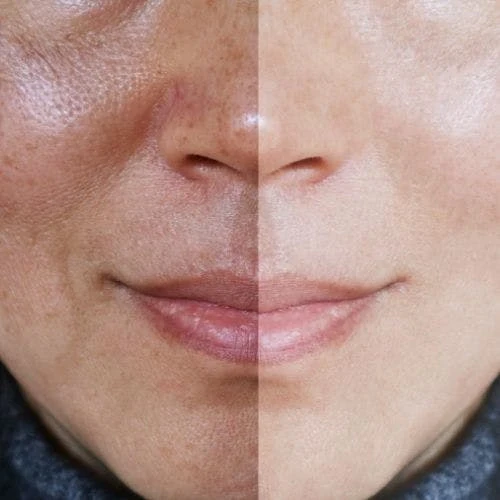How To Deal With Hair Loss From Stress
Many people wonder if their hair loss is related to their stress levels. The truth is that, yes! Hair loss can be caused by stress. Keep reading to understand why and what you can do to stop the shed!
What Causes Hair Loss From Stress?
Stress affects the immune system, and this can interfere with the body’s natural ability to fight infection. Under normal circumstances, a person’s immune system responds as needed to help the body heal and recover from illness or trauma. However, it is possible for the body to overreact to changes and conditions that are not actually harmful.
Cortisol, a hormone that your body releases when you’re stressed, is likely the culprit that is causing hair loss. Your adrenal glands, which are located on top of your kidneys, react to stress by releasing too much cortisol. The stress hormone imbalance causes thinning hair all over the scalp, or in some cases, complete hair loss on the head. Stress can also cause an increase in other hormones that cause hair loss, like testosterone and dihydrotestosterone.
Although it may seem like a complicated process, stress-related hair loss is actually quite common and is called telogen effluvium. While stress is a common cause of telogen effluvium, other causes include the post-partum state, starting a new medication, and infections, like COVID-19. The key is recognizing whether stress has been a factor in your own hair loss and understanding what causes it.
The confusing thing about stress related hair loss is that hair shedding typically does not become apparent until three months after the stress has occurred. That is because the hair follicle has a shedding phase that takes three months to complete. So while cortisol levels may signal the hair to enter the shedding phase, the hair loss does not become apparent until much later.
Treating Hair Loss From Stress
Luckily, stress-related hair loss is temporary and will reverse itself once the person stops being stressed out, usually within 3-6 months. For example, if you’re experiencing hair loss due to stress in your job then you should take steps to reduce your stress level at work if possible before your hair starts growing back on its own again.
If stress-related hair loss persists for more than six months then you should be seen by a physician to make sure other causes of hair loss have been ruled out. If a rare condition called chronic telogen effluvium, is made, then you may benefit from minoxidil available over the counter.
Fortunately, there are several steps you can take to reduce your stress levels and help prevent hair shedding. First, try to reduce your stress levels. There are many ways to do this like meditation and yoga. Other people find that exercise helps them to reduce stress. Regular exercise can help reduce stress levels as well as promote heart health and lower blood pressure—both of which may contribute to an increase in cortisol production over time.
Related: Best Moisturizer After IPL Treatment
Also, be sure to get enough sleep! It’s important to get plenty of rest each night so that your body has time to recover from the day’s events and repair itself. If you are having trouble getting restful sleep, talk to a doctor about treatment options like cognitive behavioral therapy (CBT). You may also want to talk to a mental health professional about your stress symptoms which may be hindering quality sleep.
Of course, what you put into your body also matters. Eating right will help you feel better overall and keep your cortisol levels in check. Add more vegetables and fruits into your diet while cutting down on sugar and processed foods like white bread or chips if possible.
How Much Hair Loss Is Normal?
Of course, there is a normal amount of hair loss that occurs in nearly every person. It may be hard to believe, but on average losing 100 hairs a day is considered normal. You may not notice this as many of these hairs may come out when you wash your hair, while you’re sleeping, or just during the day while you are not paying attention. Additionally, as we age, it is normal to experience a slight increase your rate of daily hair shedding. Typically, a fistful of hair loss per day is considered consistent with levels seen in telogen effluvium.
Will Hair Loss From Stress Grow Back?
The good news is, yes, stress related hair loss typically grows back on its own, without any medical intervention. However, while hair shedding typically improves within 3-6 months, it may take up to 12 months before your normal hair density is restored to its baseline.
Resources: https://www.aad.org/public/diseases/hair-loss/insider/shedding
We discuss products we think are useful to people. If you buy something through our links, we may earn a commission. Remember to check with your personal physician to see if a product recommended is right for you.








